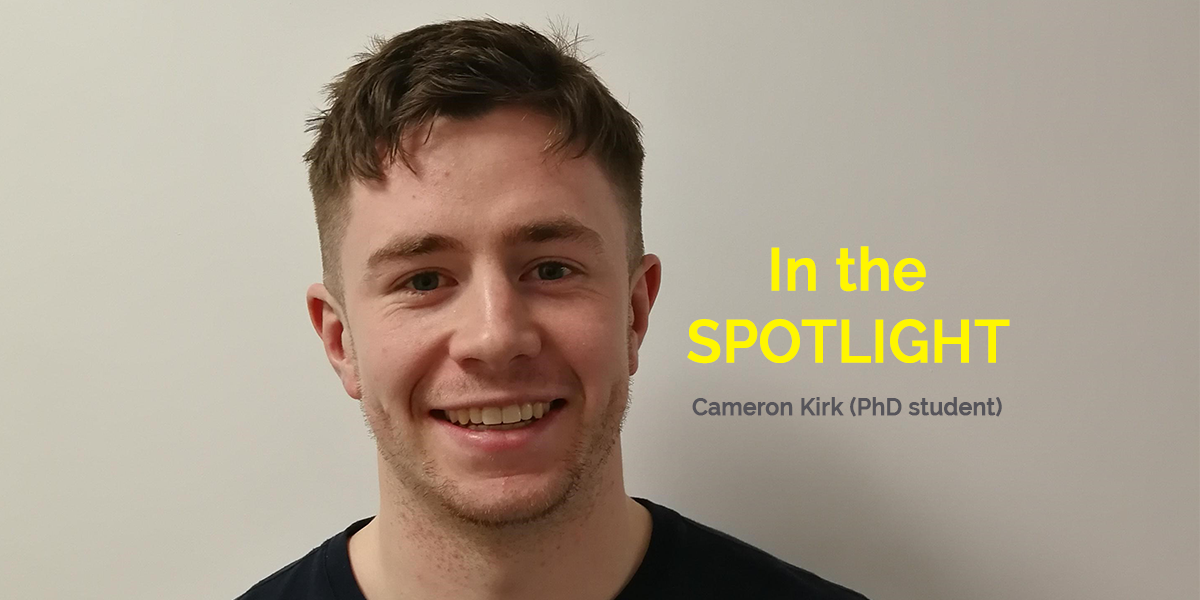The famous saying goes ”If you can’t explain your research to your family, then you don’t understand it yourself.”
The past year has taught us that scientific communication and public engagement have never been more important. Across the planet, the leading medical experts have done their best to brief the public on the latest news regarding the ongoing COVID-19 pandemic. Yet, many of these briefings have left people feeling more confused than clear.
I repeat – scientific communication and public engagement have never been more important.
This is exactly what drove me to apply for the INSIGHTS doctoral public lecture prize at Newcastle University, UK. This prize was competed by all post-graduate students within the university, and we had to create a presentation that explains our PhD research to the public, in as clear a manner as possible. I was a runner up for the award, and below is an excerpt from an interview I had with the INSIGHTS team, in the build-up for the event.
What is your background?
My name is Cameron Kirk, and I’m a 2nd year PhD student. My background is in Sport and Exercise Science, with specific focus upon Biomechanics. My PhD is exploring how we can use wearable technology to measure walking in the real-world in people with Parkinson’s disease (PD).
Why is your research important?
PD is a neurological disorder, which causes movement symptoms such as tremor, slowness of movement (bradykinesia), stiff or inflexible muscles (rigidity), and postural instability. The current method of evaluating these movement symptoms within clinics is achieved through application of questionnaire-based rating scales. Although these rating scales are considered the current best-method for evaluating motor symptom severity, there are limitations associated with its use. As such, clinicians are not able to understand how bad someone’s symptoms truly are, and thus they are not able to intervene with the best possible treatment. This ultimately results in people having precious years of their independence and quality of life cruelly taken away from them. With an ageing population, the number of people with PD is set to increase, therefore it is vitally important that we have the best testing measures in place. The real-world measurement of walking, through application of wearable technology, has emerged as a potential tool to complement assessment of clinical rating scales. Although for the real-world measurement of walking to be accepted as a tool for clinicians, researchers must prove its clinical meaningfulness, through exploring its validity against clinical scales. To date, no research has extensively explored the clinical validity of real-world walking, and that is the focus of my PhD.
Why are you interested in this area of research?
During a summer placement at my previous university (Liverpool John Moore’s), I attended meetings between clinicians, gait lab scientists, and surgeons at the Alder Hey Children’s Hospital. Here, I witnessed how the skills that I’d developed could be used to improve the lives of others, by providing clinicians with important information that informed the most effective approach to treatment. This experience coupled with a natural fascination for technology awakened a passion toward this area of research.
What is your vision for the future?
Our vision is that one day, every year, everyone over a certain age would receive in the post a wearable device. They would wear this for seven consecutive days and post the device back to their clinician once this time has expired. The clinician would then have the data presented to them in a visually intuitive way, that allows them to see if the way that person was walking throughout that week, could indicate any change in their underlying health. The clinician would then refer them in for further testing if they noticed any substantial changes.
Why did you choose to study a PhD?
I never wanted to study a PhD, it was something that always terrified me! In the third year of my undergraduate degree, I was fortunate to have an extremely supportive supervisor (s/o to Rich Foster). Rich made me believe that a PhD was a genuine option for me. As previously mentioned, my practical experiences also contributed to this decision massively.
What message would you tell your younger self?
To my insecure younger self, I would say – back yourself – have confidence and belief in yourself, and never shy away from any opportunity.
Remember to FOLLOW us on Facebook, Twitter and LinkedIn.
Subscribe to our Newsletter.






